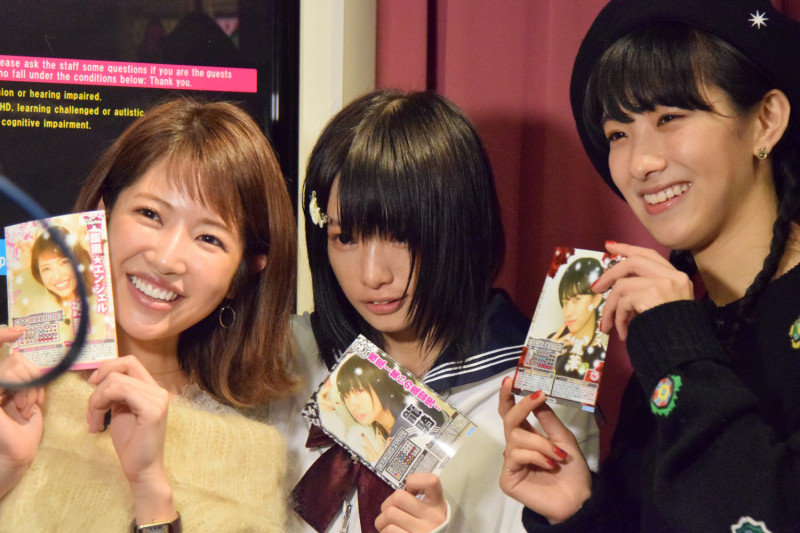Is there a hidden world of clandestine interactions lurking beneath the veneer of polite society in Japan? The hostess bar scene in Japan offers a unique and complex perspective on social dynamics, cultural nuances, and the ever-evolving landscape of entertainment, where appearances can be deceiving, and the boundaries of tradition and modernity blur.
Hostess bars, often found in bustling entertainment districts, are a distinct feature of Japanese nightlife. These establishments present themselves as spaces for relaxed enjoyment and companionship, where assigned hostesses engage in conversation to ensure guests feel comfortable and entertained. However, this seemingly straightforward premise conceals a web of intricacies and cultural sensitivities that are essential to understanding the true nature of these establishments.
These hostess bars often offer an extensive menu of drinks, including cocktails, wines, and premium spirits. The atmosphere is typically relaxed and friendly, with a focus on creating a welcoming environment. The emphasis is on the art of conversation, ensuring that guests feel valued and entertained during their visit. But the true nature of these establishments is often far more complex, as they exist within a unique cultural context that shapes their function and impact.
| Aspect | Details |
|---|---|
| Type of Establishment | Hostess Bar: A modern version of a geisha house, primarily catering to businessmen and their clients. |
| Purpose | Providing entertainment, companionship, and a space for clients to unwind. |
| Location | Common in entertainment districts, such as Roppongi and Shinjuku in Tokyo, and Fukuoka's main nightlife areas. |
| Atmosphere | Relaxed and friendly, with the focus on creating a comfortable and entertaining experience for guests. |
| Hostesses | Women employed to converse with and entertain guests. Their role is primarily conversational. |
| Compensation | Hostesses are often paid based on the number of drinks their customers buy, incentivizing them to encourage drink orders. |
| Menu | Offers a variety of drinks, including cocktails, wines, and premium spirits. |
| Cultural Context | Exists within a complex interplay of tradition, societal expectations, and economic factors. |
| Outside Interactions | Meeting clients outside of the club, particularly after hours or through "dohan" (paying for dinner with the hostess), can occur, but is often subject to varying degrees of scrutiny. |
| Legality and Ethics | Many hostesses are foreigners on tourist visas working illegally, raising ethical considerations. |
| Connection to Sex Trade | Hostess clubs and bars are considered separate from Japan's sex trade, although the lines can sometimes blur. |
| Prevalence | Numerous establishments can be found in popular entertainment districts. |
| Tourist Attraction | Hostess bars and clubs are a significant component of many cities' nightlife scenes, drawing in both locals and visitors. |
| Historical Context | Evolved as a way for businessmen to entertain clients. |
| Social Dynamics | Reflects cultural norms around masculinity, the need for companionship, and the dynamics between men and women. |
| Example location | Asakusa, a district that is home to a variety of these types of establishments. |
| Example person | Kurumi is a hostess in Roppongi, Tokyo. |
| Reference | Hostess Club - Wikipedia |
The entertainment districts of Japan, such as Roppongi, Shinjuku, and Asakusa, thrive on this dynamic. In these vibrant hubs, hostess bars and clubs act as key players in the nightlife, offering a diverse range of entertainment options. They exist within a framework that blends traditional practices with modern sensibilities, creating an environment that is both intriguing and often misunderstood by outsiders.
The role of the hostess is central to the function of these bars. These women are selected for their ability to engage in conversation, ensuring guests feel comfortable, and entertained. They create a relaxed environment and foster a sense of companionship. The success of these establishments is heavily dependent on this ability to create a welcoming and engaging atmosphere.
The financial incentives are also quite compelling. The more drinks a customer orders, the more money the hostess earns. This payment structure can significantly impact the dynamics within the bars, shaping the interactions between hostesses and their clients. It's a system that drives both the business and the work environment.
Flirting is a common element within these bars, but the lines that define these interactions can be blurry. For many, the allure of these establishments lies in the chance to engage in light-hearted flirting and the novelty of female attention. This can be a stark contrast to the often-overworked and isolated lives that many Japanese men lead.
The concept of cheating, or rather, the interpretation of infidelity, can also be seen differently within Japanese culture. Some may not consider interactions with hostesses to be a form of cheating, as the relationship is categorized as 'soto' or external, while a relationship with a friend could be considered 'uchi' or internal, thereby implying a violation of trust.
It's important to recognize that a significant portion of the hostesses are foreign nationals working on tourist visas. This situation often leads to illegal employment and exposes these women to a variety of challenges. The legality of their employment is a critical factor that complicates the ethical landscape of the industry.
The visual landscape of the hostess bar scene has also been captured in various media, as is evident in the series 'Tokyo Vice', which was filmed in 2020 and 2021. The show, set in 1999, uses locations that evoke a sense of late 90s Tokyo. These locations, which span from the interiors of hostess clubs to the police station, are representative of the wider cultural and urban environment. The series provides a glimpse into the atmosphere of these locales and their cultural significance.
The artificial island of Odaiba in Tokyo Bay, along with its diverse entertainment spots, is another area that has witnessed the growth of nightlife. The district provides a contrast to the more traditional settings found elsewhere in Tokyo. It is a hub of modernity, offering entertainment and leisure, and further expanding the scope of options.
The district of Asakusa is also particularly interesting. There, you will find a variety of hostess clubs, pubs, and other entertainment venues. These spots are integral to the fabric of Japanese nightlife, providing a place for both locals and tourists to come together, fostering experiences that are unique to this part of Japan.
In conclusion, the hostess bar scene provides a complicated, multi-layered view into Japanese society. This industry is a complex mix of tradition, entertainment, and business that continues to fascinate and challenge observers. The hostess bars' cultural significance extends past the surface level, offering a complex mix of elements that reflects the heart of Japanese life.


